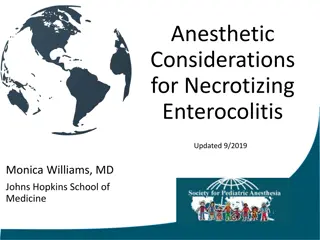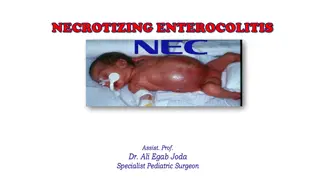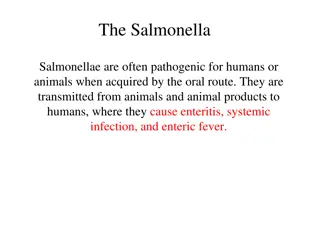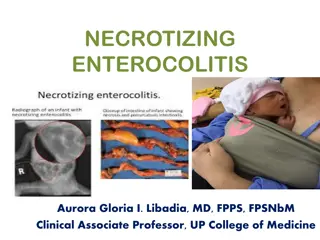Anesthetic Considerations for Necrotizing Enterocolitis in Neonates
Necrotizing enterocolitis (NEC) is a serious gastrointestinal emergency in neonates, especially those with very low birth weight. Mortality rates are high, and early diagnosis is crucial. Key features, pathophysiology, implications for anesthetic preparation, and diagnostic considerations are discus
3 views • 20 slides
Understanding Necrotizing Enterocolitis: Detection, Management, and Outcomes
Necrotizing enterocolitis (NEC) is a severe condition affecting premature and low birth weight infants, characterized by high mortality rates and long-term complications. The disease poses challenges in defining risk factors and treatment strategies, with considerable emphasis on prevention. Diagnos
0 views • 14 slides
Overview of Salmonella Infections and Pathogenicity
Salmonella bacteria, often transmitted through contaminated food or drink, can cause various infections in humans and animals. They are identified by their morphology, and classified into different species and subtypes. The pathogenesis of Salmonella infections varies, with some species infective pr
0 views • 18 slides
Necrotizing Enterocolitis: Causes, Symptoms, Diagnosis, and Treatment
Necrotizing Enterocolitis (NEC) is a serious condition affecting mainly premature infants, with unknown exact causes but potential risk factors like impaired mucosal barrier and feeding issues. Clinical manifestations include feeding intolerance, abdominal distention, and blood in stools. Diagnosis
0 views • 23 slides



